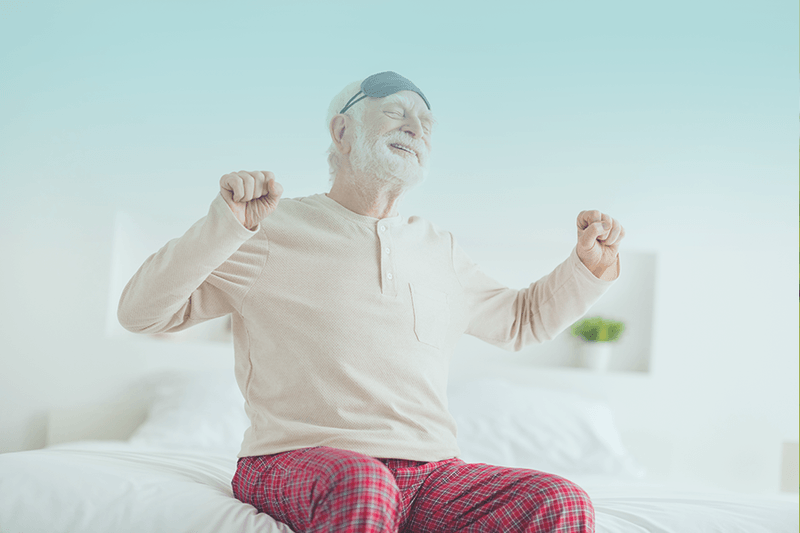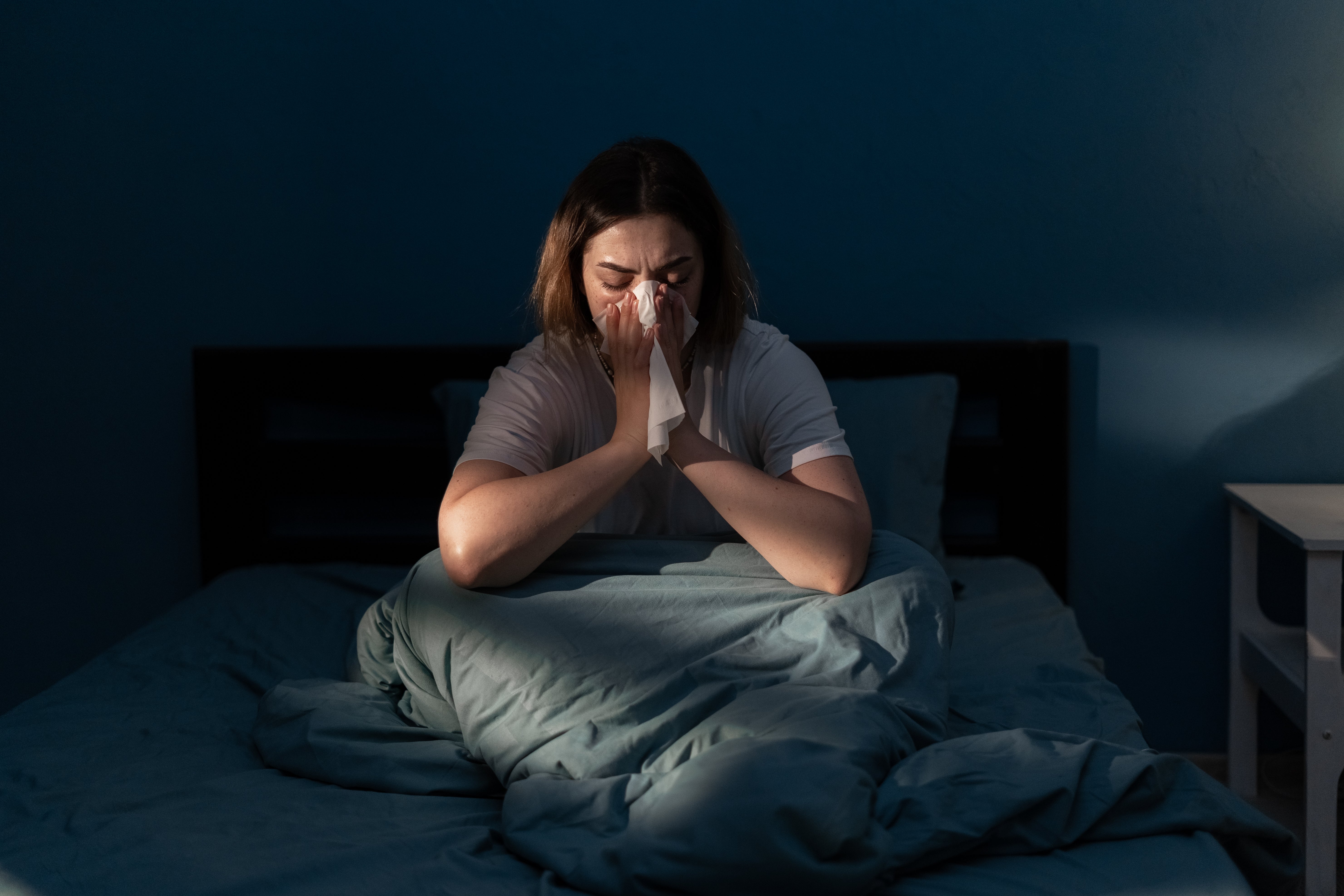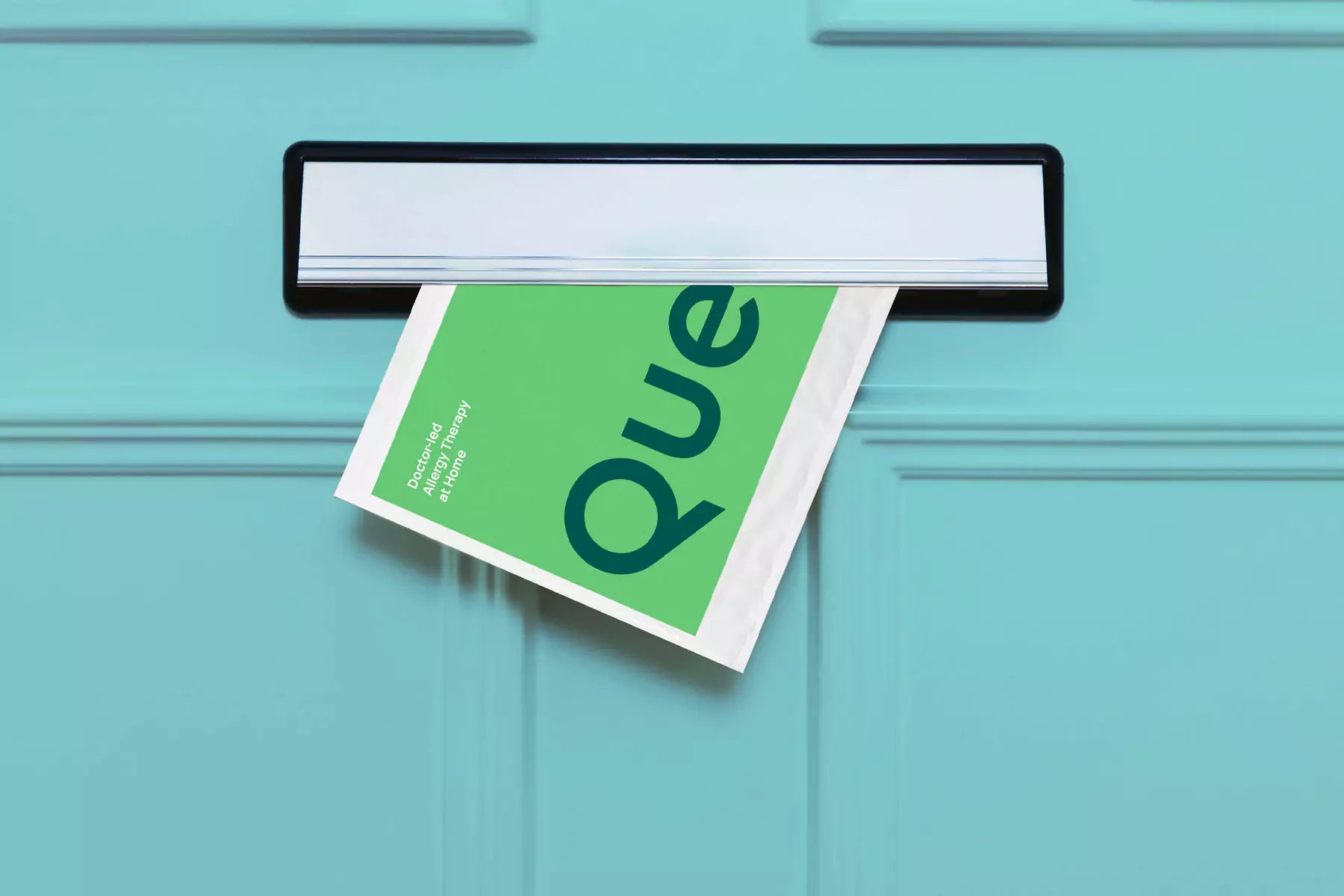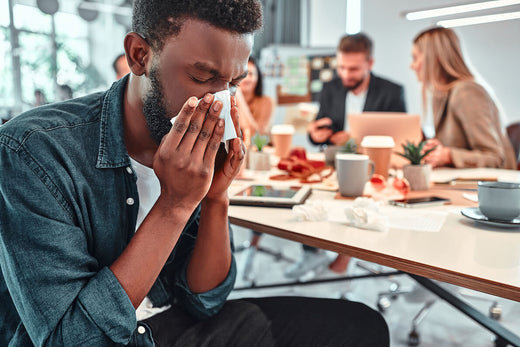
5 Reasons Your Allergies are Worse in the Morning
Allergy symptoms are often worse in the morning. Read on to learn what factors could be triggering your morning allergies.
Allergies may be worse in the morning due to bedroom allergies like dust mites, pet dander, or mold, which you are most exposed to while sleeping. (1,2) It could also be your sleep-wake cycle (circadian rhythm) worsening your morning allergy symptoms. (1)
One survey reported that people who experienced morning allergies tend to feel less energetic, more fatigued, less motivated, and more irritable than usual. (2)
Symptoms of Morning Allergies
Morning allergy symptoms are similar to allergy symptoms at other times of the day. Common symptoms you might experience include: (3)
-
Sneezing
-
Runny or stuffy nose
-
Itchy, red, or watery eyes
-
Itchy ears, nose, or throat
-
Sinus pressure or pain
-
Fatigue
You may also experience more severe allergy symptoms, including difficulty breathing, wheezing, chest tightness, and coughing. Call 911 if you find it difficult to breathe or feel your chest tightening.

Why are allergies worse in the Morning?
Allergy symptoms may worsen in the morning due to high pollen levels at that time of day or disruptions to your sleep-wake cycle, which can exacerbate your allergies, among other factors.
1. Tree pollen levels are higher in the morning hours.
Allergy symptoms are often worse in the morning because this is when some pollen levels peak, especially tree pollen. (4) The intensity of your symptoms, however, may depend on the pollen you were exposed to, how abundant it is in that season, and how long you were exposed to it. (5)
2. Increased buildup of pollen allergens during the day
If you sleep with your windows open at night, especially in the hot summer, your allergies will likely flare up in the morning because of pollen particles that you might have been exposed to all night long.
Even if you don’t sleep with your windows open, pollen allergy can still flare up in the morning. For example, if you’ve been outside during the day, pollen can stick to your clothes, hair, and skin. When you head indoors, you can transfer pollen to your furniture and bedding, which might also lead to worsening symptoms in the morning.
3. Exposure to dust mites throughout the night
Allergy symptoms due to dust mites tend to feel worse in the morning because you're exposed to the allergen throughout the night.
Dust mites like to hide out in soft places like your mattress, pillows, and bedding. They also like places that are difficult to get rid of, such as curtains, carpets, furniture, and rugs. So when you sleep on these beddings, they can trigger your symptoms.
4. Inflammation peaks during the night and early morning
Your sleep-wake cycle (circadian rhythm) may also play a role in determining when your allergy symptoms worsen. (1) At night and early in the morning, your histamine levels rise naturally, which triggers inflammation. Inflammation can lead to symptoms like sneezing, itching, nasal congestion, or runny nose. (1) Similarly, the hormones that fight these inflammations tend to be lower at this time.
5. Overnight exposure to indoor allergens and other irritants worsens allergies
Overnight exposure to indoor allergens such as pet dander, molds, or other irritants like body mists, cleaning supplies, and smoke can increase your allergy symptoms as well. While irritants don’t directly cause allergies, they can certainly exacerbate existing allergies.

How to Manage Morning Allergies
If you constantly have morning allergies, here are some ways you can reduce your triggers and find relief for ongoing symptoms:
-
Take over-the-counter (OTC) allergy medication at bedtime.
-
Consider long-term allergy treatments such as immunotherapy (allergy shots or allergy drops).
-
Do not let your pets sleep on your bed if you are allergic to pet dander.
-
Try taking a shower and changing your clothes before crawling into bed.
-
Close your windows at night, if possible.
-
Consider replacing carpets in your bedroom with hardwood or tiles.
-
Turn on a dehumidifier (dust mites thrive in humid environments).
-
Use a HEPA air purifier to trap airborne allergens.
-
Schedule professional mold testing for your home if you suspect mold.
-
Purchase dust mite covers for your mattress and pillows.
-
Vacuum your carpet at least once a week.
When to See a Doctor
If you are not getting relief despite using OTC allergy treatments and reducing allergen exposure, consult an allergist. They might give you a prescription for more severe allergy symptoms or suggest allergy testing to determine your triggers.
Discover Relief From Morning Allergies With Quello
Looking for a more lasting relief for your uncomfortable morning allergy symptoms?
Quello allergy drops are specifically designed to target the 40 most common indoor and outdoor environmental allergens that can make morning allergies worse.
Our allergy drops don’t just treat your morning allergy symptoms; they prevent symptoms for good by training your immune system to tolerate allergens like pet dander, pollens, and other indoor allergens.
You will also receive ongoing support from our allergy experts and doctors to manage any immediate concerns you might have.
Take the first step toward allergy-free mornings and contact us today.

Overcome your allergies at home with our doctor-led therapy.
Get started with our free allergy test kitGet Started with no test needed.
Overcome your allergies at home with our doctor-led therapy.
Get started with our free allergy test kitGet Started with no test needed.



